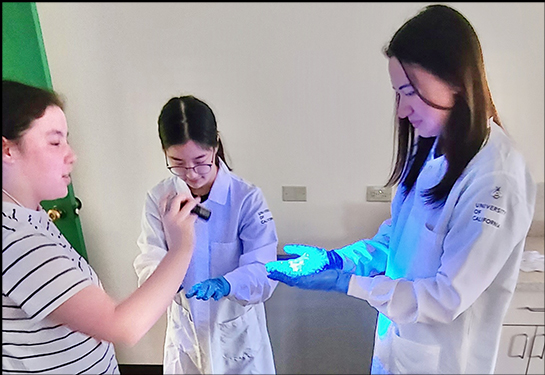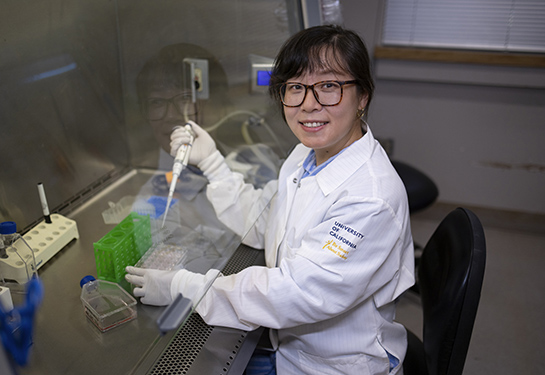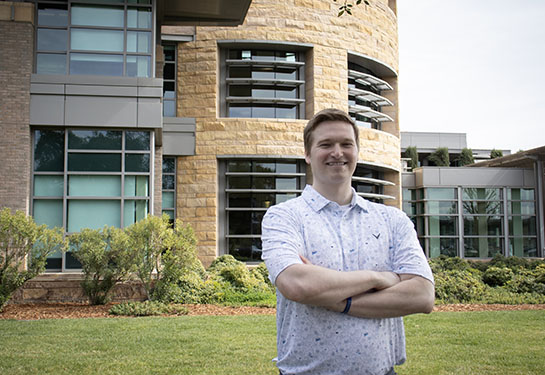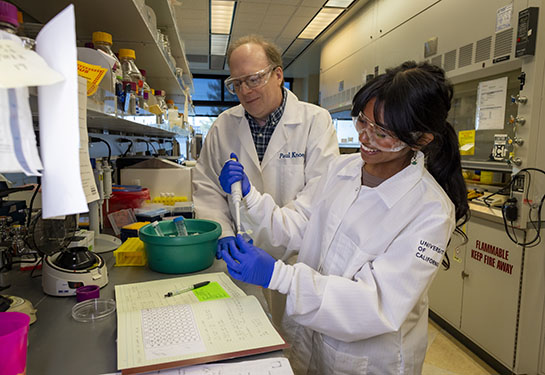Yolo County high school students gain hands-on experience in UC Davis research labs
Internship hosted by the Department of Medical Microbiology and Immunology introduces teenagers to academic research
A collaboration between UC Davis and the Career Technical Education (CTE) program at local high schools is providing a unique opportunity for teenagers to learn about academic research and careers in science.
The 10-week internship started last year through a partnership between UC Davis and the Davis Joint Unified School District. Two schools were involved in the inaugural program — Davis Senior High and Martin Luther King, Jr. High. This spring, the partnership expanded to include the district’s Da Vinci Charter Academy and Esparto Joint Unified School District’s CTE program at Esparto High.
Students are mentored by faculty and staff from the UC Davis School of Medicine’s Department of Medical Microbiology and Immunology.
“The Department of Medical Microbiology and Immunology is excited to expose local high school students to educational pathways and career opportunities in our ever-important field,” said Satya Dandekar, the department chair and a distinguished professor. “We are deeply committed to nurturing curiosity, knowledge and opportunity among young learners. Connecting with our local community in this way is one of the most meaningful parts of our work and mission.”
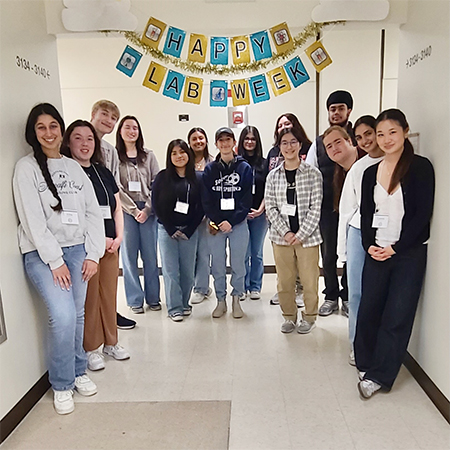
Hands-on learning from laboratory experts
Highlights of the internship include:
- Laboratory safety training, where students learn about Personal Protective Equipment and basic skills such as pipetting, using the thin tubes that measure small amounts of liquid
- Research laboratory demonstrations on techniques and toolsets used by some of the university’s top-notch researchers
- The basics of animal research
- Learning about 3D printing from UC Davis biomedical engineering experts
- Knowing the importance of preventing and treating infectious diseases and immunologic disorders
- An introduction to laboratory research, design and equipment
- Sessions where students explore careers in research laboratory
The interns also spend time at the UC Davis Center for Valley Fever where they are introduced to the etiology and pathogenesis of Valley Fever, a worrisome fungal infection unique to the Southwest. It’s been found in soil, mostly in Texas, New Mexico, Arizona, Utah, Nevada and California. The teenaged students learn about resources and tools required for Valley Fever’s clinical diagnosis.
Exceeding student expectations
Interns are on the UC Davis campus every Tuesday afternoon during the program. The most recent cohort started March 18 and completed the program on May 22.
The internship has exceeded the students’ expectations.
“I think it's pretty special because not that many colleges would be willing to work with high school students — and not a lot of facilities, especially in this area, have the same kind of equipment as UC Davis,” said Leonitis Letelier, a junior at Da Vinci.
“I have a lot of interest in pathology and immunology, and I believe this research team could help me learn a lot more about the subjects,” added Letelier, who aspires to attend community college, then a state university, then medical school.
Haylee Kim learned about the program while searching for internships during a class at Davis Senior High and this one “sounded really cool.” And she was right.
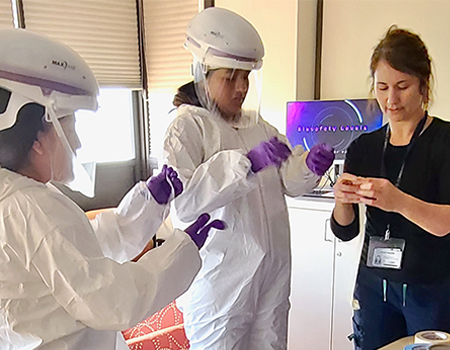
“I’m really impressed, it’s really in depth,” said Kim, a junior who was taking advanced placement biology and also biomedical sciences during the program. The internship, she said, will help her connect to what she’s learning in school. Plus, “It’s actually helping me narrow down the things I may want to major in, in the future.”
Kim praised her mentors for being accessible and promoting a comfortable learning environment.
For Rune McNaughton, who recently graduated from Martin Luther King, Jr. High, spending time at the UC Davis School of Veterinary Medicine was a highlight of his internship as he learned about the protocols for animal testing.
The internship also came at a good time for McNaughton, as he’s deciding the steps to take toward pursuing a career. He’s now motivated to take more seriously the prospect of attending college, thanks to the question-and-answer sessions with faculty members in biomedical engineering who shared their career paths with the teenagers.
“Every time I hear someone present, I feel like I want to do what they do for work, so this has definitely opened my mind.”
‘The next generation of researchers at UC Davis’
The program is a win-win for the high schools and UC Davis.
“The partnership between UCD, DJUSD and Esparto High School is significant because it provides students such a unique opportunity to learn valuable, hands-on skills and gain certifications for future jobs,” said Alexha Contreras, internship specialist with the Davis district. “However, the most valuable aspect of all is that this opportunity allows students to learn more about themselves and create connections.”
UC Davis is eager to introduce the next generation of students to a university that is well known for its science-based education — and to rewarding careers where discoveries can cure diseases and transform the world.
“UC Davis is excited to host this internship because this program provides an opportunity for us to introduce students to the various career opportunities in biological and biomedical sciences,” said Maria Mudryj, vice chair of education and outreach for the Department of Medical Microbiology and Immunology.” These students may be the next generation of researchers at UC Davis.”
Dandekar, the department chair, said the university cherishes the ability to make valuable connections — such as introducing talented faculty and staff to the high school students. “By giving them early exposure to real-world research and mentorship,” she said, “we hope to ignite a lasting passion for scientific discovery and public health.”


